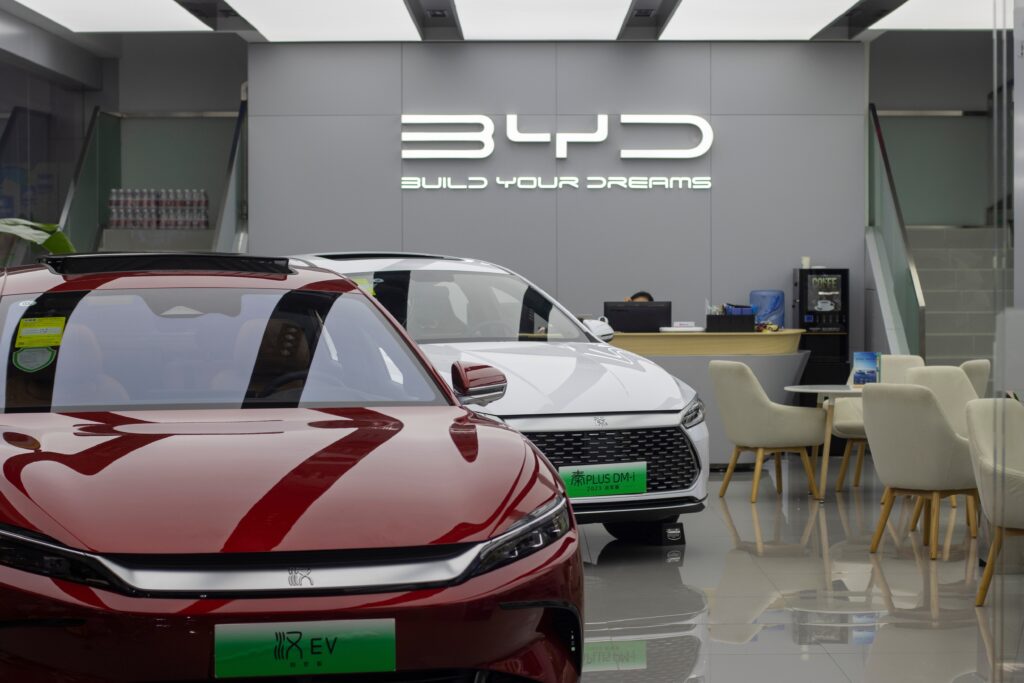Shares of Chinese electric vehicle maker BYD fell by as much as 8% on Monday. The decline followed weaker profits, squeezed by a brutal price war in the domestic market.
Quarterly profits under pressure
On Friday, BYD announced net profit of 6.4bn yuan ($900m; £660m) for April to June. That figure was down 30% compared with the same period last year. The company admitted that intensified price competition across the EV sector has hurt performance.
Rivals deepen the struggle
The Shenzhen-based carmaker competes with local challengers Nio and XPeng, alongside Tesla from the US. All have slashed prices to secure buyers. BYD shares opened lower in Hong Kong on Monday but regained some ground later in the day.
The company said competition had reached “fever pitch”. It also criticised excessive marketing, which it argued destabilised the market. Manufacturers have turned to subsidies and zero-interest loans, further squeezing profitability.
Beijing steps in with warnings
Chinese regulators urged carmakers to stop aggressive discounting, warning of risks to the wider economy. Average car prices in China have fallen about 19% over two years. They now stand close to 165,000 yuan ($23,100; £17,100), according to industry estimates.
Despite growing international sales, BYD’s earnings fell short of analyst expectations. Predictions of a modest rise instead turned into a steep decline.
Sales targets face mounting risks
BYD aimed to sell 5.5 million vehicles worldwide this year. By the end of July, however, it had sold only 2.49 million. Prof Laura Wu of Nanyang Technological University in Singapore called the results “surprising”. She said they proved even market leaders remain vulnerable in a cut-throat price war.
Wu said the drop in stock value showed investor disappointment. She added that earlier government policies encouraged too many new players, making competition difficult to control. While discounts benefit consumers now, she warned they could create oversupply in the long run.
Analysts remain confident in growth
Investment manager Judith MacKenzie of Downing Fund Managers said the downturn should not be overstated. She argued that BYD’s meteoric rise made a slowdown inevitable.
The company has already overtaken Tesla as the world’s largest EV maker, surpassing it in revenue in 2024. Its success has been powered by strong demand for hybrid models in China, Asia, and Europe.


